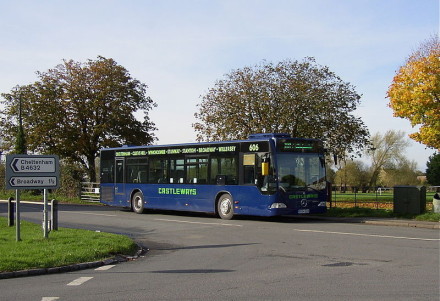To have a fully functioning society, bus services in rural areas should be free of charge. For young people seeking employment, education or entertainment, the unwell needing to visit and be visited in hospitals or the elderly wanting to break the loneliness of isolation, public transport is essential. If governments don’t want to spend money on services in rural areas, they should at least provide the means for people who live there to get to them in urban areas.
Regular bus services provide that; to the doctors, to a library, to see family and friends, to shop and buy food and to places of work. In a society built on mobility, the importance of transport can’t be understated. Buses and trains are a vital lifeline to millions of people across rural Britain.

Yet today, those who live in villages unable to drive or without access to a car are completely limited in their life chances. Yes, they can move to urban areas, but our countryside should surely be for all – not the exclusive preserve of households with one or more cars.
Elmsett is a beautiful village in Suffolk. It has a single bus in and out; every Thursday morning and afternoon. The conundrum of work and travel is clear – a catch 22. How can a young person get a job without a car or run a car without a job. Is it fair that somebody should have to pay for the journey to the doctors? That’s not free healthcare at the point of use in my book.
Buses should not only be free of charge in rural areas, they must also be frequent, reliable and regular. Early morning and evening services are essential. Only then will whole, mixed communities in rural areas be able to play a part in society, not be stuck in the confines of village life. Yes free buses would cost the tax payer. Those costs need to be balanced against savings already made – and with many still available – through the ongoing concentration of facilities in towns.
De-regulation of buses has been a disaster for public transport – especially in rural areas. The competition between operators, if it ever materialised, has disappeared. We’re left with the County Council allocating reduced subsidies to support maintenance of struggling routes and, without them, bus operators keen to scrap unsatisfactory services.
This is crazy. Our railways reveal a popular preference for the public transport alternative over cars for many of the journeys we make. Clogged roads, accidents, delays, parking problems and charges are avoided – much pollution too. Yet in rural areas – ever more dominated by two and three-car households – public transport doesn’t even begin to compete.
In the late 1940s the key that unlocked change for a country emerging from six years of war was popular planning of services to meet public need. That’s what we need today.
Of course, to do this we must first nationalise the buses. The tax payer should not be handing money to inefficient and profit driven companies. There is overwhelming support for nationalising the railways and I do believe that same support can be mustered for nationalising buses too.
Free bus passes for the elderly is now seen as the right thing to do and this should be extended to all ages living in rural Britain to support health, education, jobs and social activities within our more remote communities. Quite simply, if governments are not willing to provide sufficient services and jobs to these rural communities, they should at least provide the means to get to the services and jobs, free of charge.




More from LabourList
‘Labour won’t stop the far right by changing leaders — only by proving what the left can deliver’
‘Cutting Welsh university funding would be economic vandalism, not reform’
Sadiq Khan signals he will stand for a fourth term as London Mayor